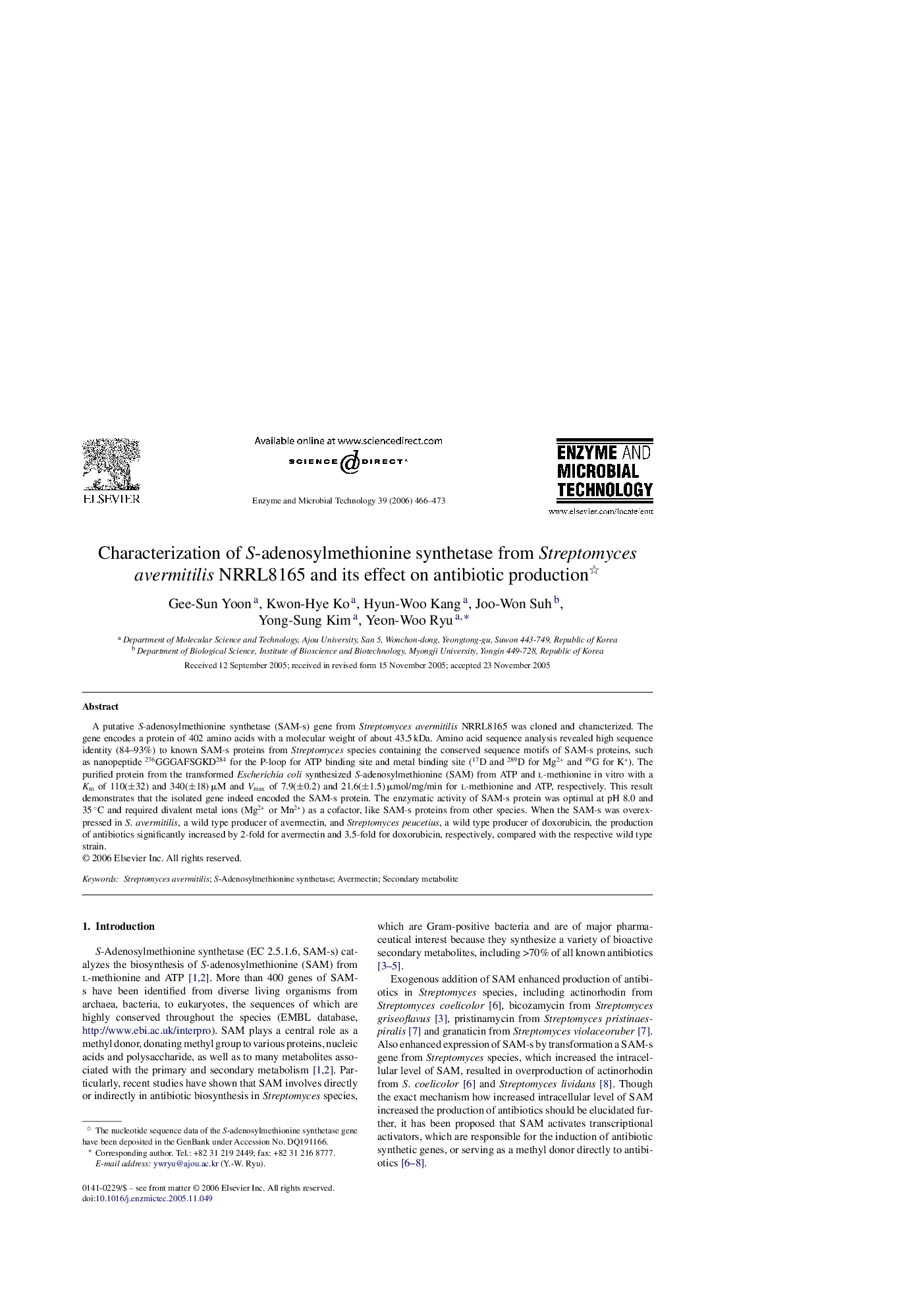| Article ID | Journal | Published Year | Pages | File Type |
|---|---|---|---|---|
| 18444 | Enzyme and Microbial Technology | 2006 | 8 Pages |
A putative S-adenosylmethionine synthetase (SAM-s) gene from Streptomyces avermitilis NRRL8165 was cloned and characterized. The gene encodes a protein of 402 amino acids with a molecular weight of about 43.5 kDa. Amino acid sequence analysis revealed high sequence identity (84–93%) to known SAM-s proteins from Streptomyces species containing the conserved sequence motifs of SAM-s proteins, such as nanopeptide 276GGGAFSGKD284 for the P-loop for ATP binding site and metal binding site (17D and 289D for Mg2+ and 49G for K+). The purified protein from the transformed Escherichia coli synthesized S-adenosylmethionine (SAM) from ATP and l-methionine in vitro with a Km of 110(±32) and 340(±18) μM and Vmax of 7.9(±0.2) and 21.6(±1.5) μmol/mg/min for l-methionine and ATP, respectively. This result demonstrates that the isolated gene indeed encoded the SAM-s protein. The enzymatic activity of SAM-s protein was optimal at pH 8.0 and 35 °C and required divalent metal ions (Mg2+ or Mn2+) as a cofactor, like SAM-s proteins from other species. When the SAM-s was overexpressed in S. avermitilis, a wild type producer of avermectin, and Streptomyces peucetius, a wild type producer of doxorubicin, the production of antibiotics significantly increased by 2-fold for avermectin and 3.5-fold for doxorubicin, respectively, compared with the respective wild type strain.
